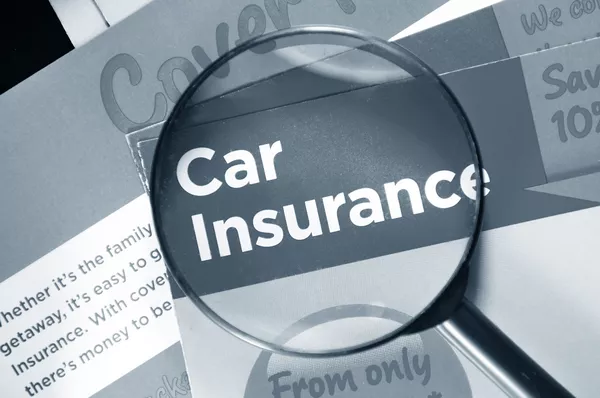For those embarking on the adventure of owning a recreational vehicle (RV) in Canada, securing adequate insurance coverage is essential. RV insurance not only protects your investment but also provides peace of mind while traveling on the open road. However, understanding the factors that influence RV insurance costs and exploring available coverage options can help you make informed decisions. In this guide, we delve into the average costs of RV insurance in Canada, the influencing factors, class-specific costs, coverage options, discounts and savings, policy customization, insurance providers, the claim process, and tips for lowering costs.
Average Cost Range
The cost of RV insurance in Canada can vary widely depending on several factors, making it challenging to provide an exact figure. However, as a general guideline, RV insurance premiums typically range from $500 to $2,000 annually. This range encompasses various types of RVs, coverage levels, and individual circumstances.
Influencing Factors
Several factors influence the cost of RV insurance, including:
Class of RV: The class of RV, such as Class A, B, or C, significantly impacts insurance costs. Class A motorhomes, which are larger and more luxurious, tend to have higher premiums compared to smaller Class B or C models.
Frequency of Use: How often you use your RV can affect insurance costs. Vehicles that are used frequently or for extended periods may have higher premiums due to increased exposure to risk.
Driving Record: Your driving record plays a significant role in determining insurance premiums. A clean driving record with no accidents or traffic violations typically results in lower rates, while a history of accidents or tickets may lead to higher premiums.
Storage Location: Where you store your RV when it’s not in use can impact insurance costs. Vehicles stored in secure facilities or garages may be eligible for lower premiums compared to those stored outdoors or in less secure locations.
Class-Specific Costs
To provide a more precise idea of what to expect, here’s a breakdown of average costs by RV class:
Class A: Premiums for Class A motorhomes can range from $1,000 to $4,000 annually, depending on factors such as size, value, and usage.
Class B: Class B RVs, also known as camper vans, typically have lower premiums, ranging from $500 to $2,000 per year.
Class C: Premiums for Class C motorhomes fall between those of Class A and B, averaging $800 to $3,000 annually.
Coverage Options
RV insurance typically offers various coverage options tailored to meet your needs, including:
Liability: Protects you in case you’re responsible for causing injury or property damage to others while operating your RV.
Collision: Covers the cost of repairs or replacement if your RV is damaged in a collision with another vehicle or object.
Comprehensive: Provides coverage for non-collision-related incidents, such as theft, vandalism, or weather damage.
Additional Options: Optional coverage options may include roadside assistance, emergency expenses, and loss replacement coverage.
see also: How Much Does An Accident Raise Your Insurance?
Discounts and Savings
Insurance providers often offer discounts and savings opportunities to help reduce premiums. Common discounts include:
Multi-Policy Discount: Bundling your RV insurance with other policies, such as auto or home insurance, can lead to significant savings.
Safe Driver Discount: Maintaining a clean driving record with no accidents or violations may qualify you for lower premiums.
Anti-Theft Devices: Installing security features such as alarms, GPS tracking systems, or immobilizers can help lower insurance costs.
Defensive Driving Course: Completing a defensive driving course may qualify you for a discount on your RV insurance premiums.
Policy Customization
Customizing your RV insurance policy to fit your specific needs is crucial for ensuring adequate coverage and managing costs. Working closely with your insurance provider to tailor your policy can help you identify areas where coverage can be adjusted to better suit your lifestyle and budget.
Insurance Providers
When shopping for RV insurance, it’s essential to compare offerings from different providers to find the best coverage at the most competitive rates. Some well-known insurance providers offering RV insurance in Canada include:
- Aviva
- Intact Insurance
- TD Insurance
- CAA Insurance
- RSA Canada
Comparing quotes and evaluating coverage options from multiple providers can help you make an informed decision.
see also: What is the average cost for liability car insurance?
Claim Process
In the event of an accident or damage to your RV, the claim process typically involves:
Notification: Contacting your insurance provider to report the incident and initiate the claims process.
Documentation: Providing documentation, such as photos, police reports, and repair estimates, to support your claim.
Assessment: An adjuster will assess the damage and determine the coverage applicable to your policy.
Resolution: Once the claim is approved, repairs or replacement will be arranged, and any applicable deductible will be paid by the policyholder.
Choosing the right coverage and deductible amount will impact your out-of-pocket costs in the event of a claim.
Tips for Lowering Costs
To potentially lower RV insurance costs, consider the following tips:
Safe Driving Habits: Maintain a clean driving record to qualify for lower premiums.
Security Measures: Install anti-theft devices and park your RV in secure locations to reduce the risk of theft or vandalism.
Annual Review: Regularly review your policy and coverage needs to ensure you’re not paying for unnecessary or redundant coverage.
Conclusion
Understanding the factors influencing RV insurance costs, exploring coverage options, leveraging discounts and savings opportunities, customizing your policy, comparing providers, understanding the claim process, and implementing cost-saving measures can help you secure affordable and comprehensive insurance coverage for your RV adventures in Canada.
FAQs about RV Insurance
1. Where is the cheapest RV insurance?
The cost of RV insurance can vary depending on factors such as the type of RV, its age, your location, driving history, coverage limits, and insurance provider. To find the cheapest RV insurance, it’s essential to shop around and compare quotes from multiple insurance companies. Additionally, consider factors such as the coverage offered, customer service reputation, and financial stability of the insurer when choosing a policy.
2. How much does it cost to insure a motorhome in Alberta?
The cost of insuring a motorhome in Alberta depends on several factors, including the motorhome’s value, size, age, usage, and your driving history. On average, RV insurance premiums in Alberta can range from a few hundred to several thousand dollars per year. To get an accurate quote, it’s best to contact insurance providers directly and provide them with detailed information about your motorhome and coverage needs.
3. How much is trailer insurance in Ontario?
The cost of trailer insurance in Ontario varies depending on factors such as the trailer’s value, size, type (e.g., travel trailer, fifth-wheel trailer), usage, and your location. On average, trailer insurance premiums in Ontario can range from a few hundred to over a thousand dollars per year. To obtain an accurate quote, consider contacting insurance companies that offer trailer insurance and providing them with specific details about your trailer and coverage requirements.
4. Who has the best RV insurance?
The “best” RV insurance provider can vary depending on individual preferences, needs, and circumstances. Some factors to consider when choosing an RV insurance provider include:
Coverage Options: Look for insurers that offer comprehensive coverage options tailored to RVs, including coverage for personal belongings, roadside assistance, and emergency expenses.
Customer Service: Research customer reviews and ratings to gauge the quality of service and responsiveness of the insurer.
Claims Process: Evaluate the ease and efficiency of the claims process, including the insurer’s reputation for handling claims promptly and fairly.
Cost: Compare premiums and discounts offered by different insurers to find the most competitive rates for your RV insurance needs.
Financial Stability: Consider the financial strength and stability of the insurer, as this can affect its ability to pay claims and provide long-term coverage.
You Might Be Interested In




















